Ellie Huxtable
@ellie.wtf
7 months ago yay thank you! DMd you :)
💬 0
♻️ 0
❤️ 1
yay thank you! DMd you :)
my "the typescript team wants to do it but doesn't have enough staff and can't get this work prioritized enough to spend the time on it but the vscode team really seems to have a lot of money and staff and this may indicate something about corporate priorities" sweater is raising other questions
my "this thread in the microsoft typescript repo about why typescript doesn't implement the microsoft language serve protocol to support other editors when the microsoft vscode editor typescript support is good says something about microsoft and market power" tshirt is raising a lot of questions
vite@6.1.0-beta.0 is out! Celebrating 70K GitHub Stars 🌟
Help us test the beta and check out the changelog at github.com/vitejs/vite/... Which autogenerated values do you use the most in your Prisma schemas? Let us know! There are two that we didn't talk about here:
* sequence()
* dbgenerated()
These two are used in cases that are a bit more complex. Have a look at our docs to learn more about them: www.prisma.io/docs/orm/re... ☝️ In the same realm, we have `uuid()` which is a Universally Unique ID.
This type is common across the web and Prisma supports version 4 (the default) and version 7. 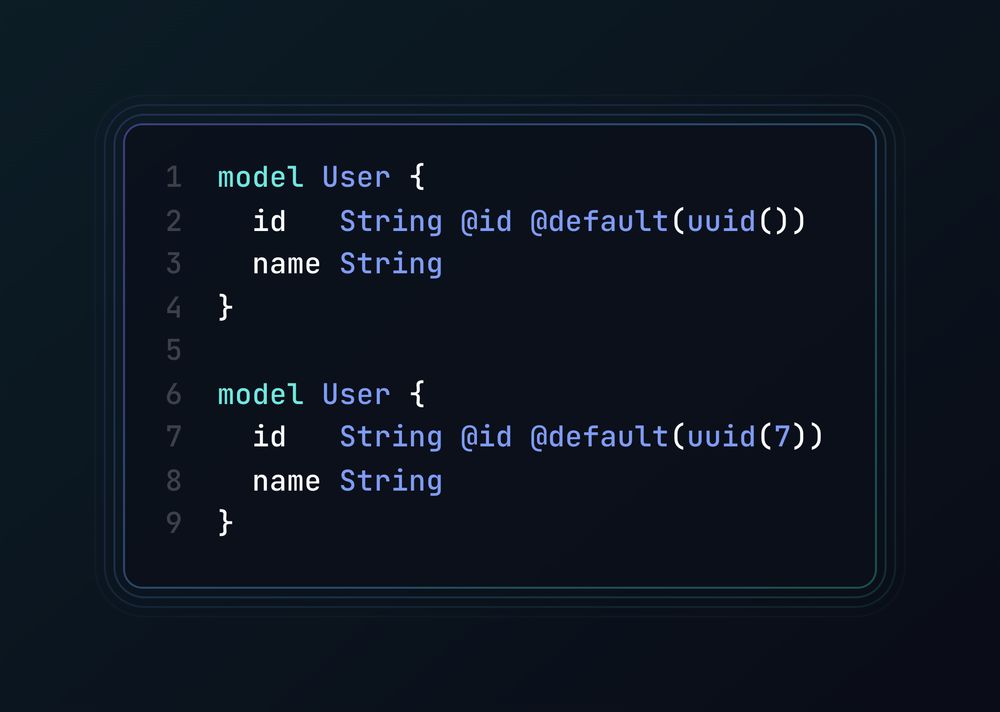
📜 Let's slide back over to ID values and talk about `ulid()`.
This one is actually newly supported in Prisma 🎉
It stands for Universally Unique Lexicographically Sortable Identifier and this ID type provides 128 bits of randomness.
You can read up on it here: github.com/ulid/spec 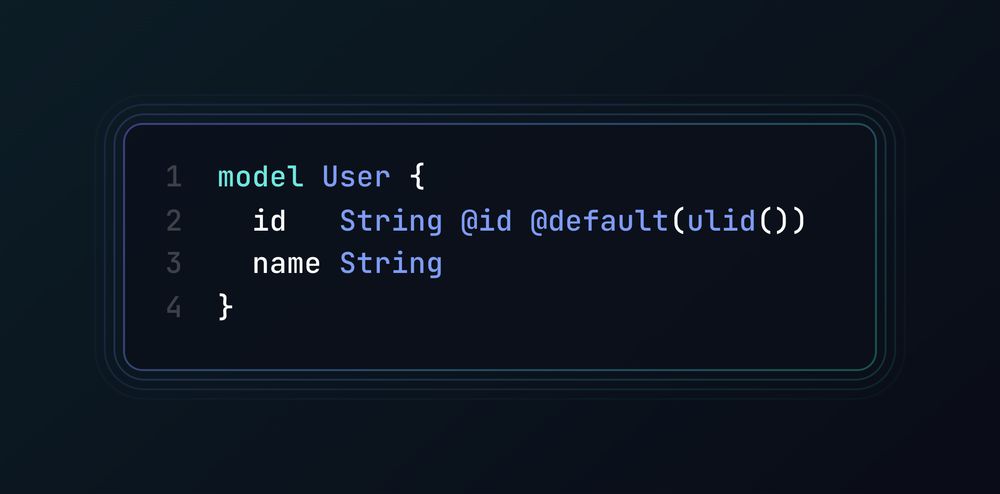
⏰ Let's take a time out to talk about DateTimes.
We've got a function called `now()` which will give us the current timestamp.
This is useful when we want to track a DateTime at the moment the record is affected, like a `createdAt` field, for example. 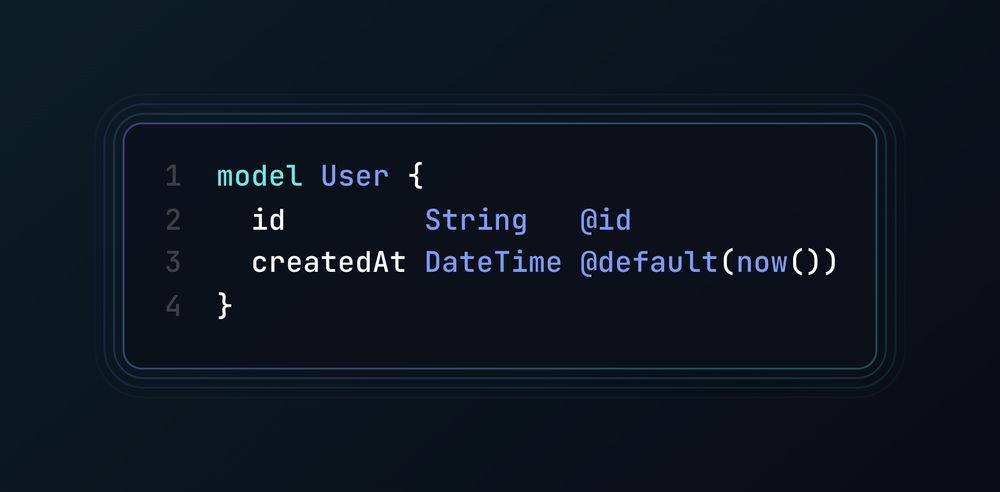
🔬 Sticking with IDs, next up is `nanoid()`.
This ID type can vary in length. The function accepts an integer value between 2 and 255 that specifies the length of the generate ID (the default is 21). 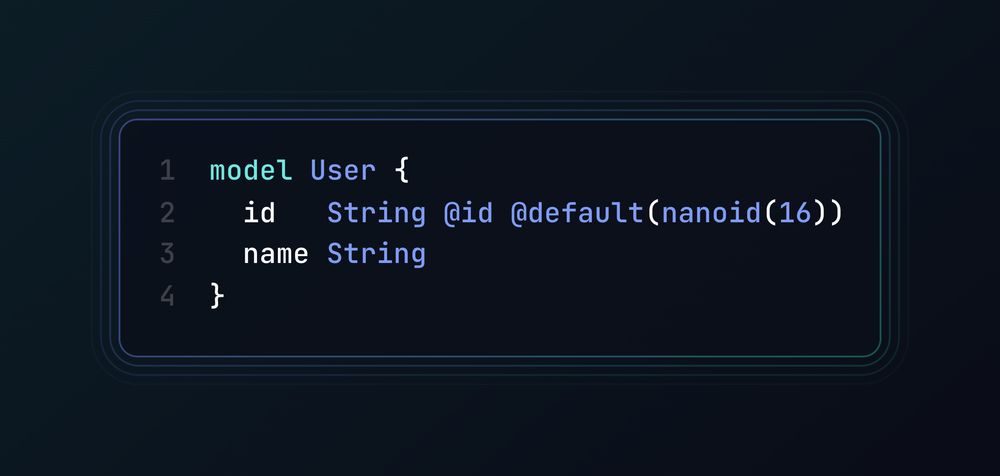
🪪 Here's another you may have seen: `cuid()`.
This stands for collision-resistant unique ID. These IDs offer uniqueness guarantees and some extra security features.
Read more on them here: github.com/paralleldri...
With Prisma, you can use cuid or cuid2. 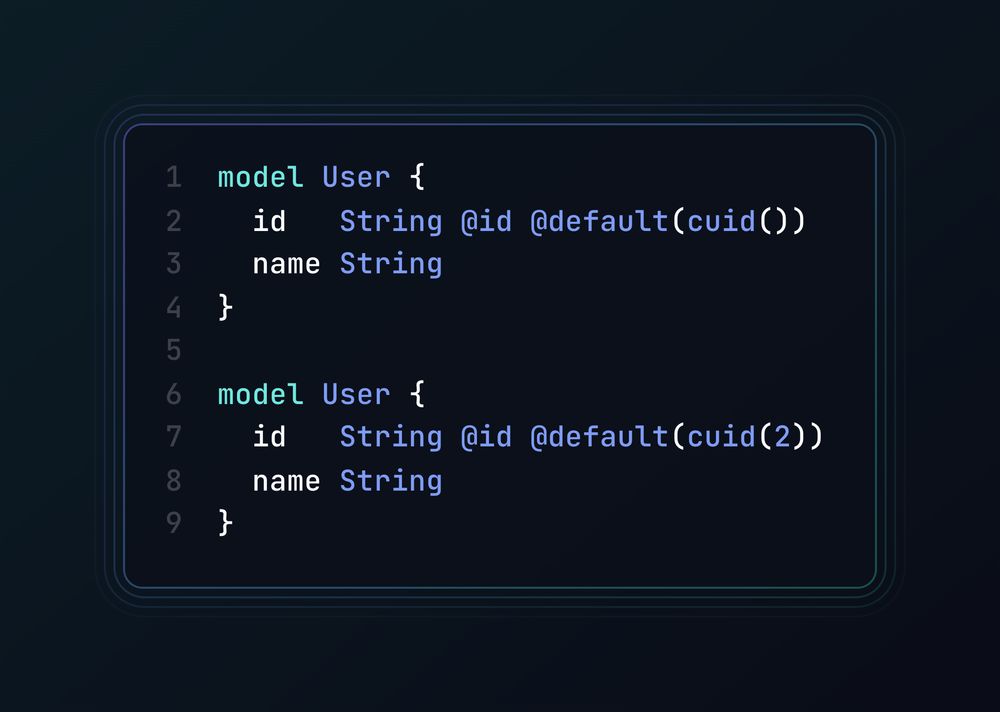
📈 Next up is one you've probably seen before: `autoincrement()`.
This one is useful if you're tracking your IDs with an `Int` type and you want to automatically bump the number for new records. 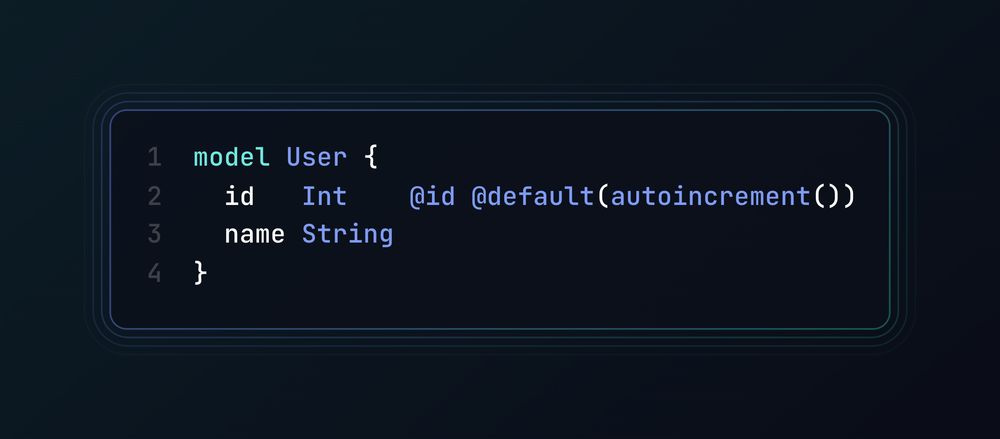
🚗 First up, we've got `auto()`. This one's a bit of an outlier because it's only used in MongoDB.
Reach for this one to automatically generate an `ObjectId`! 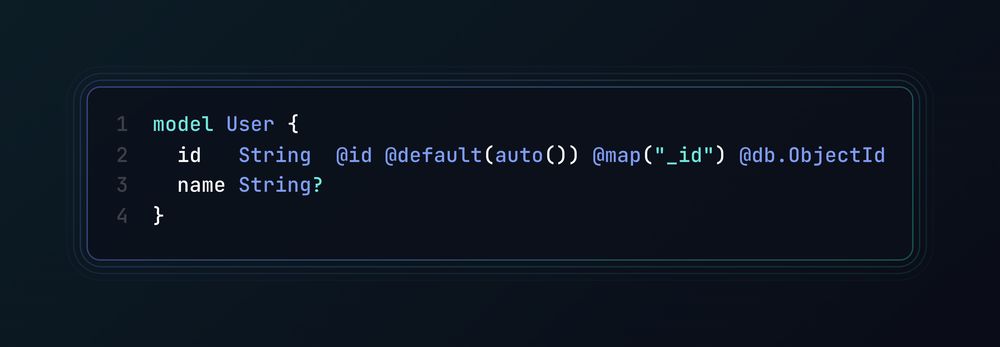
You've probably used some attribute functions in your Prisma schema.
These are the functions you can pass into `default()` to get an autogenerated value
But do you know all of them? 👀
Here's a rundown from A to Z 👇 These are a lot of fun to write, and I get to learn new things from the people that we interview. Thanks @natanrolnik.bsky.social for taking part in this one 💜 We curate the content, you decide how to read it:
· Subscribe: tuist.dev/newsletter
· RSS: tuist.dev/newsletter/r...
· Atom: tuist.dev/newsletter/a... Our 2nd "Swift Stories" issue is out. In it we talk about extensibility in #Swift apps, interview @natanrolnik.bsky.social, Apple platforms developer at Monday.com and the author of @swifttoolkit.bsky.social, and share some resources that the community has curated for you
tuist.dev/newsletter/i... You can decide how to read our newsletter :):
· Subscribe: tuist.dev/newsletter
· RSS: tuist.dev/newsletter/r...
· Atom: tuist.dev/newsletter/a... We've heard good things from Vim users about Zed's Vim mode; features and fixes get peppered into almost every release, but we're still improving. We just published a blog post outlining our vision for Vim in Zed for 2025. Check it out:
zed.dev/blog/vim-2025 I’ll DM! ☺️